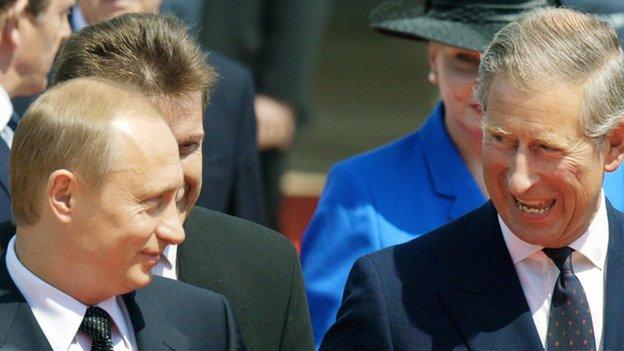Prince Charles as king: What type of monarch will he be?
- Published
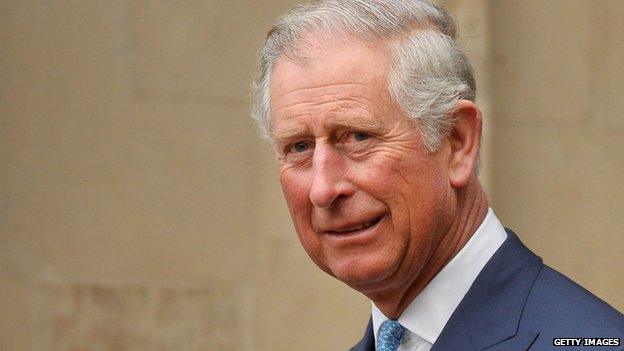
When Prince Charles accedes to the throne, reports say he will make "heartfelt interventions" in national life, a contrast to his mother's "taciturn discretion on public affairs". What will Charles III be like as king?
Not so long ago, there was a new buzz word in royal circles. Transition. Tentatively, without fanfare, plans were put in place so that Prince Charles could take on more of his octogenarian mother's workload.
The prince, who's waited a lifetime to fulfil his destiny, had a taste of his future when he represented the Queen at last year's Commonwealth Heads of Government Meeting in Sri Lanka. And three separate royal press offices were brought together under one (large) roof at Buckingham Palace. The aim was for royal communications to sing from one regal hymn sheet in preparation for when a new reign began.
They're no longer together. It was a short-lived experiment. Those who craft Charles's image are back at his London residence, Clarence House, focusing just on his needs. The word transition doesn't slip as easily off royal tongues anymore.
His desire to have his people close at hand shows a man, of pensionable age, who's still very focused on what he can do now as heir to the throne.
'Convening power''
But what will the prince be like as king? The Guardian has entered the debate, external with a lengthy article entitled: "Revealed: how Charles III will speak his mind".
It's a debate his office is not prepared to engage in. His spokeswoman told the BBC "speculation about The Prince of Wales's future role as king has been around for decades but it is not something we have commented on and nor will we do so now."
But the prince has been more forthcoming.
He told a BBC documentary to mark his 60th birthday in 2008 that his function would be to bring people together to focus on issues, to exploit what he calls his "convening" power. When asked whether as king he would continue to champion themes, the Queen's eldest son replied: "I don't know. Probably not in the same way".
And he told Vanity Fair magazine, external in 2010 that he sees the role in "a different way" from his predecessors, because the situation has changed.
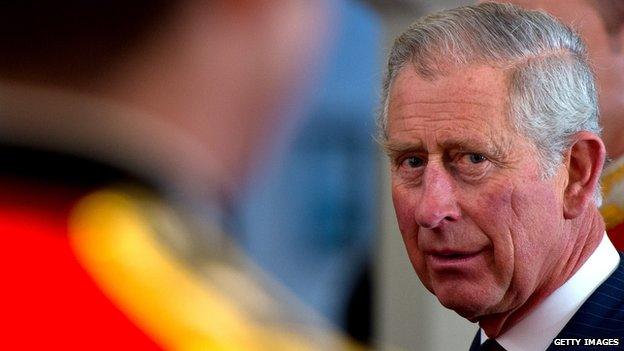
Those around the prince say he knows his power will be curtailed when he is king
The crux of the issue is: how far will a man, whom some accuse of being meddlesome and who others argue mobilises people, go when he is on the throne? Will he, as a hereditary monarch, intervene in a way which his mother has avoided and in a way which might provoke a constitutional crisis?
He's a passionate prince who's championed countless causes. As a young man, in 1970, one of the first topics to provoke him was the fate of Atlantic salmon at a time when declining fish stocks weren't an emotive issue.
During the Blair years, he lobbied the Labour government to expand grammar schools, change course on climate change and GM crops, and to introduce complementary medicine on the NHS.
'Boundaries'
Can all that passion just be switched off once the wait is over? How would Charles as king cope if he had to sign into law a proposal to increase significantly GM crops in this country?
Those around him are keen to reassure. They stress the prince knows his actions will be curtailed once he's crowned - hence his keenness to act now.
The environmentalist Patrick Holden told the Today programme that "in moving towards the throne" the way in which his friend expressed himself "will have to change".
"But he's always been very good at boundaries," he added.
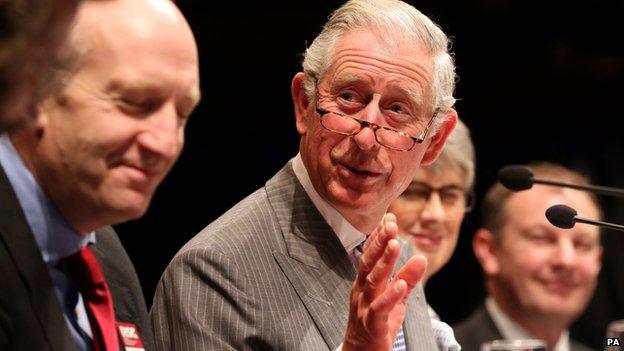
Prince Charles himself has said masses of people "need encouraging"
The prince's opponents are not reassured. Republic, which campaigns for an elected head of state, maintains that an "activist king" would be "intolerable" in a democratic society.
Spokesman Graham Smith said: "Charles is a very good advert for why the monarchy is a bad idea. The monarch has power, access and influence, and is completely beyond the reach of democratic accountability."
The heir - who could have just waited but chose instead not to waste his time - once summed up his motivation like this: "It's called duty. There's an enormous amount that needs doing. There are masses of people who need help and encouraging and I'm just one of those people who mind."
The reign of Charles III - if he chooses to keep his own name - will be different to the reign of Elizabeth II. Just how different is what troubles his critics.
- Published4 November 2014
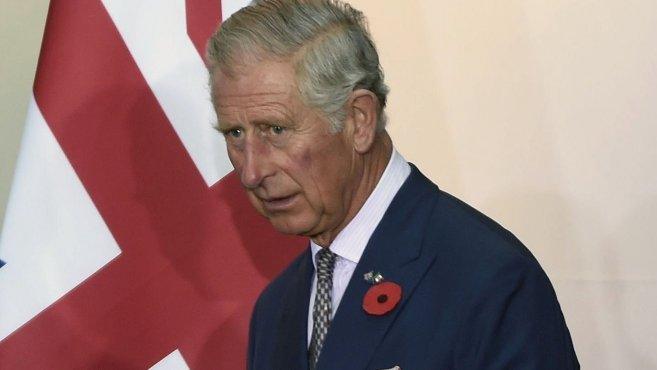
- Published29 June 2014
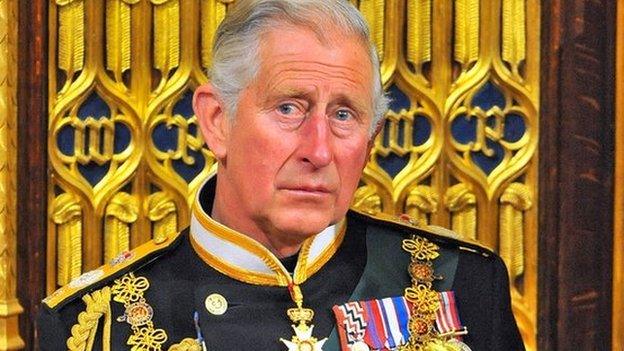
- Published21 May 2014
